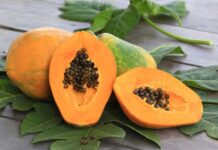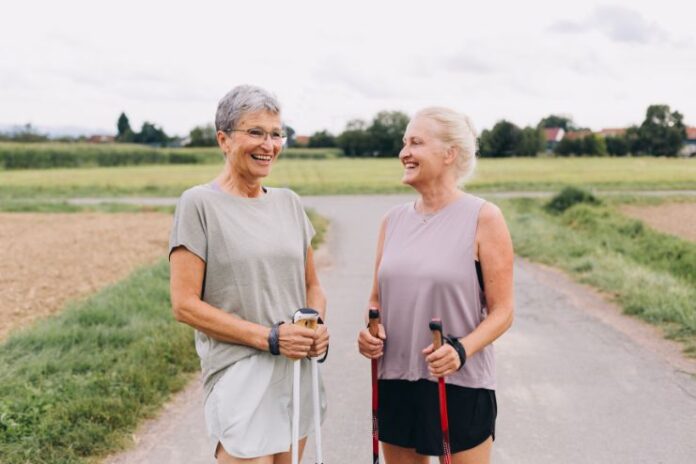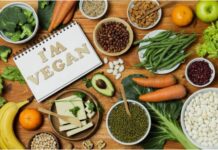After 40, your bones need more than just calcium to stay strong. As women age, especially after menopause, hormonal changes, particularly the drop in estrogen, can lead to a significant loss in bone density.
In this article, we will identify the top five nutrients every woman over 40 should include in her diet for strong bone health. These nutrients interact to improve calcium absorption, increase new bone tissue formation, and slow the rate of bone loss.
Maintaining good nutrition now can help prevent bone problems later in life. Whatever your motivation for staying active, keeping the joints healthy, or aging well, learning about what vitamins and minerals your bones need is essential.
Keep reading to find out how these necessary nutrients can benefit your bones in the years to come.
Read More: Understanding Hormonal Changes in Women
Why Bone Health Becomes a Priority After 40
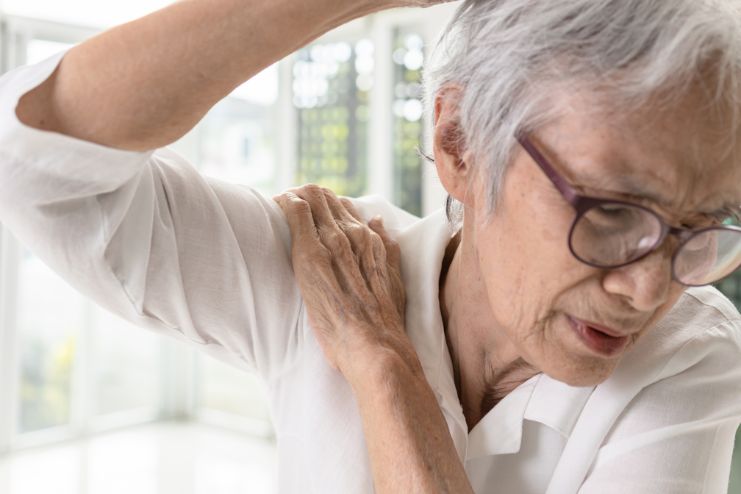
As a woman gets older, her bones naturally weaken. Knowing how aging and bone strength are related is the most important thing in avoiding long-term complications such as fractures and osteoporosis.
Natural Bone Loss Starts Around 35–40
Bone is a dynamic tissue that continuously breaks down and forms. However, the rate of bone loss begins to outpace bone growth by the time we are in our late 30s or early 40s.
This progressive loss of bone density is a natural aging process, but it can become more critical if left unattended early on.
The Impact of Menopause on Bones
In women, menopause affects bones significantly. The decrease in estrogen during these years accelerates bone loss, a process known as bone resorption. After menopause, women may experience rapid and severe declines in bone density.
Women can develop fragile bones and fracture easily if their bodies don’t have sufficient amounts of estrogen. Menopause and bone density are inextricably connected, with women losing as much as 20% of their bone mass during the five to seven years after menopause.
Why Early Prevention Matters
Prioritizing bone health in your 40s prevents serious issues later on. Although your bones may not show symptoms as of now, gradually, it can result in fractures, a change in posture, backache, and loss of mobility.
Taking action now decreases your chances of osteoporosis and keeps you healthy and independent in old age.
The Power of Diet, Lifestyle, and Targeted Nutrients
The good news is that there are many strategies you can use to protect your bones. Eating a balanced diet rich in nutrients for bone health after 40, plus performing weight-bearing exercises, having a healthy lifestyle such as avoiding smoking and excessive drinking, can have a significant impact on your bone health.
Calcium, vitamin D, magnesium, and protein are essential nutrients that support strong, healthy bones. Coupling these with exercise and regular bone exams can help you stay healthy for a long time.
Read More: How to Deal with Night Sweats After Menopause
5 Essential Nutrients Every Woman Over 40 Needs for Stronger Bones
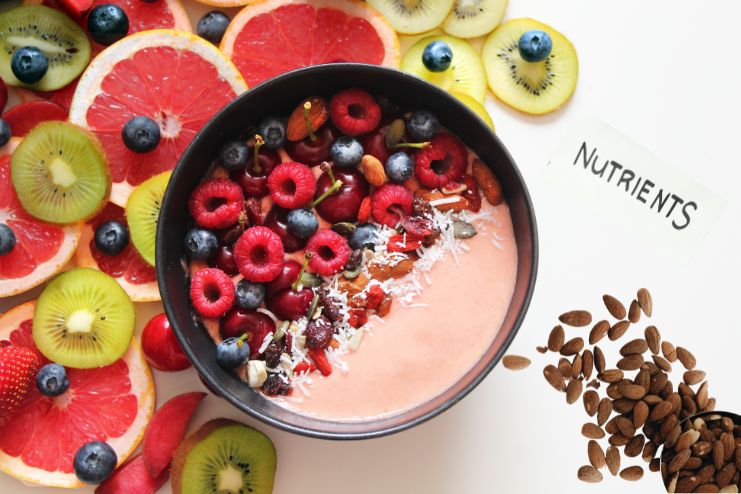
As women enter their 40s, having healthy bones becomes increasingly important. Hormonal shifts—especially the drop in estrogen—accelerate bone loss, increasing the risk of fractures, posture issues, and osteoporosis.
But the good news is that by consuming the right nutrients to prevent bone thinning, you can stay strong and active for decades. Let’s look at the 5 nutrients a woman over 40 should include in her diet for stronger bones.
1. Calcium

Calcium is the foundation of bone structure. It’s the most well-known mineral when it comes to building and maintaining bone strength.
To support bone density, aim to consume 1,000 to 1,200 mg of calcium daily. Spread your intake throughout the day for better absorption, as your body absorbs smaller amounts more efficiently.
The best dietary sources of Calcium include:
- Low-fat dairy (milk, yogurt, cheese)
- Leafy greens (collard greens, bok choy, kale)
- Sesame seeds and fortified plant-based milk
Calcium plays a vital role, along with vitamin D, in protecting bones. That’s why calcium and vitamin D are often mentioned together for bone health.
2. Vitamin D

Vitamin D is essential for any woman who aims to stay active and healthy as she ages. It controls blood calcium levels and helps the body absorb calcium. It also strengthens muscles, preventing falls, a major cause of fractures.
Women over 40 should aim for 600–800 IU daily, higher if deficient.
The best dietary sources of Vitamin D include:
- Sunlight exposure (10–15 minutes a day)
- Fatty fish like salmon and mackerel
- Fortified cereals, dairy, and orange juice
Vitamin D3 supplements are often necessary, especially during the winter or for individuals with low vitamin D levels.
3. Magnesium

Magnesium is often overlooked, but it complements vitamin D and is necessary for calcium metabolism. It helps regulate bone crystal formation, which keeps your bones dense and less prone to breakage.
The daily recommended intake for women over 40 is around 310–320 mg.
The best dietary sources of Magnesium include:
- Nuts and seeds, particularly pumpkin, sunflower, and almond seeds
- Whole grains and legumes
- Leafy greens and dark chocolate
Adding magnesium for bone density can make a noticeable difference in long-term bone health.
4. Vitamin K2
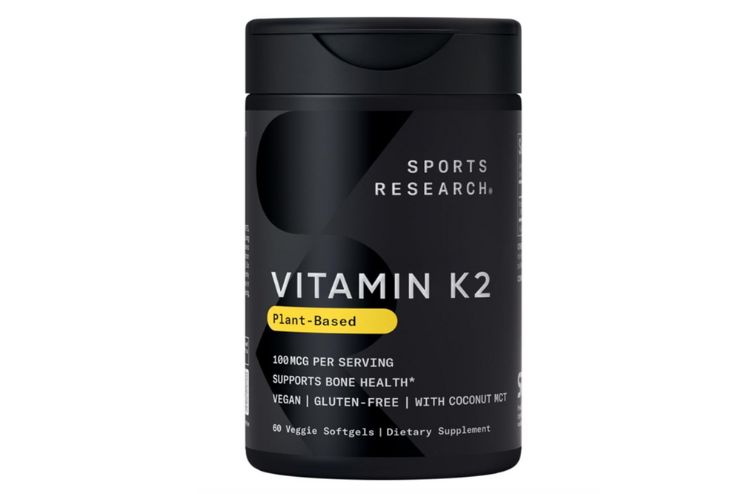
Vitamin K2 plays a unique and powerful role in directing calcium to the bones rather than letting it settle in the arteries—something vitamin K1 doesn’t do. Vitamin K2 supports bone mineralization and helps maintain skeletal strength. Critical for postmenopausal women to maintain bone integrity.
Women over 40 typically need a daily intake of 90–110 mcg of vitamin K2, and pairing it with vitamin D3 enhances its effectiveness.
The best dietary sources of Vitamin K2 include:
- Natto (fermented soybeans—richest source)
- Aged cheeses, egg yolks, and fermented dairy
Vitamin K2 plays a crucial role in bone health, making it essential to consider supplementation.
5. Collagen (and Protein)
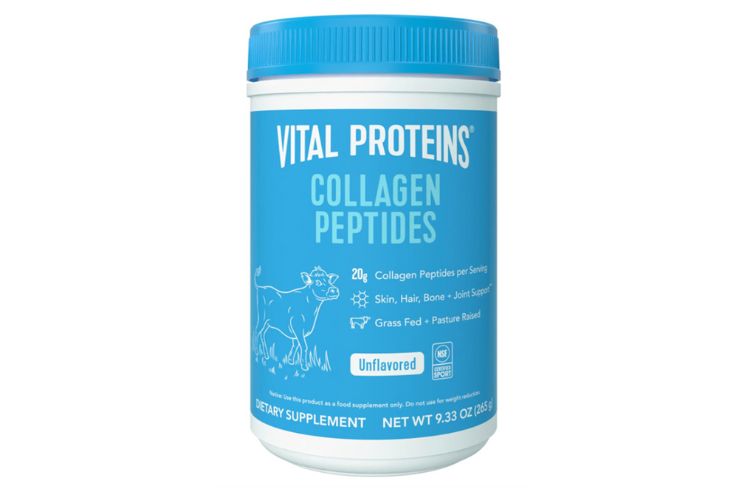
Bones are not just minerals—they’re made up of about 30% collagen, a protein that provides flexibility and shock absorption. Without enough collagen, bones lose flexibility and become brittle.
Ensure you’re getting enough protein daily, about 0.8–1 gram per kg of body weight, to maintain muscle mass and bone strength to prevent falls.
The best dietary sources of Collagen include:
- Bone broth and collagen peptides
- Lean meats, fish, and legumes
- Soy products and Greek yogurt
By focusing on these five nutrients—calcium, vitamin D, magnesium, vitamin K2, and collagen—you’re giving your bones the best chance to stay strong as you age.
Together, they form the best combination of vitamins for bone strength when taken in the right amounts. This approach also offers a powerful strategy for preventing osteoporosis naturally, without relying solely on medication.
Read More: Best Cardio Exercises for Daily Fat Burning
Bonus Lifestyle Tips for Stronger Bones

Strong bones don’t occur overnight. Aside from diet and supplements, your daily routines contribute significantly. Below are some natural ways to strengthen your bones and maintain long-term bone health.
Move Your Body with Bone-Boosting Exercises
Staying active is one of the best ways to keep your bones strong. Weight-bearing exercises like brisk walking, hiking, and dancing help stimulate bone growth.
Strength training with weights or resistance bands helps improve bone density by applying healthy stress to the bones. Over time, even brief daily exercises might have a significant impact.
Avoid Habits That Harm Your Bones
Some lifestyle habits can contribute to reducing bone strength without you even realising it. Consuming too much alcohol, smoking, and excessive levels of caffeine can lower your body’s capacity for absorbing and storing calcium.
Individually, these habits increase the risk of developing bone thinning and fractures over time. Limiting these habits will maintain bone health during old age.
Know Your Numbers: Get Bone Density Scans
Once you hit menopause—or if you have risk factors such as a family history of osteoporosis—it’s worth getting regular bone density scans.
These tests will determine how strong your bones are and catch early signs of bone loss. Early detection means you can take action before it gets worse.
Be Consistent with Bone-Healthy Nutrients
A diet rich in proper foods matters, but consistency does too. After the age of forty, include foods that promote bone health in your regular diet, such as calcium, vitamin D, magnesium, protein, and omega-3 fatty acids.
Foods high in omega-3 fatty acids, such as walnuts and fatty fish, may reduce bone loss and the risk of osteoporosis. A properly planned bone-building diet for women ensures that your bones receive support every day.
With the proper combination of movement, conscious habits, and diet, you can maintain healthy bones naturally, well into the future.
Read More: Hidden Signs that Need More Water
Conclusion

Bone health beyond 40 is much more than merely consuming a sufficient amount of calcium. Your bones depend on a synergistic combination of nutrients such as vitamin D, magnesium, protein, and omega-3 fatty acids to remain strong and supple.
These nutrients interact to enhance the absorption of calcium, facilitate bone development, and lower the risk of fractures later in life.
It’s never too early—nor too late—to act. A combination of a bone-building diet for women’s bone health supplements and regular weight-bearing exercises can work wonders in maintaining bone density and strength. Small steps such as reducing smoking, limiting alcohol intake, and being active can help avoid falls and fractures in the future.
Consider your 40s as the building years for healthy bones for the later years. Establishing good habits now translates to fewer mobility problems and an active, independent lifestyle in the future.
References
- https://www.mayoclinic.org/healthy-lifestyle/adult-health/in-depth/bone-health/art-20045060
- https://www.pharmacytimes.com/view/vitamins-and-minerals-the-essentials-for-women
- https://www.verywellhealth.com/vitamin-d-your-prevention-ally-2322660
- https://www.health.harvard.edu/staying-healthy/essential-nutrients-your-body-needs-for-building-bone
- https://orthoinfo.aaos.org/en/staying-healthy/healthy-bones-at-every-age/
- https://www.moneycontrol.com/news/health-and-fitness/6-tips-for-maintaining-bone-health-for-women-in-their-40s-10947361.html
- https://nortonhealthcareprovider.com/news/bone-health-at-age-40/
- https://pmc.ncbi.nlm.nih.gov/articles/PMC9805882/
- https://www.gradyhealth.org/blog/10-ways-to-keep-your-bones-healthy/
- https://www.medicalnewstoday.com/articles/325903
- https://www.webmd.com/osteoporosis/ss/slideshow-superfoods-for-your-bones
- https://medwayhospitals.com/bone-health-in-women/
- https://www.cranesmill.org/blog/health-wellness/best-nutrition-for-seniors-quiz/
- https://www.nutritioninsight.com/news/the-future-of-bone-health-a-deep-dive-into-emerging-trends-innovations-and-ingredients.html
- https://www.aarp.org/health/healthy-living/foods-for-bone-health/
In this Article











